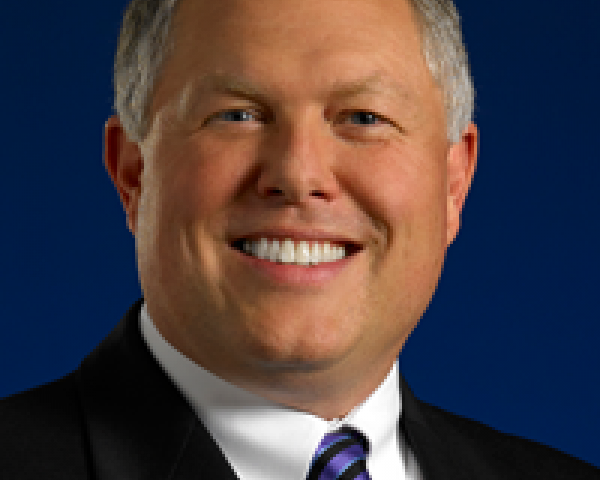 Behavioral health claims not only affect your employees directly, but they also can have a significant impact on your business. According to a recent study by IBI, four of the top six employment-related concerns of employers related to the health of their workforce. The study also found that mental health was the second-highest duration of disability diagnosis for their short-term disability programs.
Comcast has had 1,300 to 1,600 behavioral health claims per year, paying millions of dollars in benefits. One area of concern for the company is that 60% of those being treated were not being seen by licensed behavioral health experts. Instead, they were being treated by general practitioners who lacked the expertise to adequately address the issues. Comcast is trying to focus on being an advocate for its workers on health issues, and part of that includes assisting them in being treated by the appropriate medical providers.
See Also: A New Focus for Health Insurance
Comcast’s program is currently focused on the group benefits side. The company hopes to someday expanded to workers’ compensation. If employees have a behavioral health diagnosis, they are required to treat with a practitioner specifically licensed in that area. Comcast does not direct to specific providers but instead work with the employee to help identify providers in the network. The Comcast employee assistance program (EAP) comes into play as the employee can receive a certain number of behavioral health visits under this at no cost to the worker. The program has been in place less than a year, but Comcast is already seeing significant decreases in duration of disability for behavioral health claims.
There is hope that this program can have a positive impact on workers’ compensation claims, as well. Under the EAP program, Comcast can provide the behavioral health treatment outside the workers’ compensation claim to help address the psycho-social issues that could have an impact on the claim. This approach recognizes that you must treat the whole person to effectively manage workers’ compensation claims, and you cannot ignore psycho-social issues that may be affecting the case.
One of the first resources that Comcast tapped into in developing its program was its EAP provider. The provider offers a variety of resources to the workforce, not just in the area of behavioral health but also with a variety of lifestyle issues. The EAP was being underutilized before this program started, but the change in focus helped employees to fully understand the benefits under their EAP.
Resilience is a also very important issue that can affect both disabilty and workers’ compensation claims. Comcast is working with a vendor partner to assist employees in developing coping skills and being more resilient. Comcast feels that by strengthening the resilience of its workforce it can significantly reduce all disability in the workplace.
Comcast is also using more telehealth, which is yielding positive results. It makes it easier for the employees to receive medical care in a timely manner. This has been especially useful with behavioral therapy.
The company is also hoping that the focus on getting the employee the proper care will decrease relapse in disability. Oftentimes, relapse is driven by the employee's not receiving the appropriate treatment.
The overall focus at Comcast is establishing a culture of health for the workforce. The company wants employees to engage in the healthcare experience and become educated consumers. The hope is this culture will ultimately lead to healthier employees, which will result in fewer disability and workers’ compensation claims.
Behavioral health claims not only affect your employees directly, but they also can have a significant impact on your business. According to a recent study by IBI, four of the top six employment-related concerns of employers related to the health of their workforce. The study also found that mental health was the second-highest duration of disability diagnosis for their short-term disability programs.
Comcast has had 1,300 to 1,600 behavioral health claims per year, paying millions of dollars in benefits. One area of concern for the company is that 60% of those being treated were not being seen by licensed behavioral health experts. Instead, they were being treated by general practitioners who lacked the expertise to adequately address the issues. Comcast is trying to focus on being an advocate for its workers on health issues, and part of that includes assisting them in being treated by the appropriate medical providers.
See Also: A New Focus for Health Insurance
Comcast’s program is currently focused on the group benefits side. The company hopes to someday expanded to workers’ compensation. If employees have a behavioral health diagnosis, they are required to treat with a practitioner specifically licensed in that area. Comcast does not direct to specific providers but instead work with the employee to help identify providers in the network. The Comcast employee assistance program (EAP) comes into play as the employee can receive a certain number of behavioral health visits under this at no cost to the worker. The program has been in place less than a year, but Comcast is already seeing significant decreases in duration of disability for behavioral health claims.
There is hope that this program can have a positive impact on workers’ compensation claims, as well. Under the EAP program, Comcast can provide the behavioral health treatment outside the workers’ compensation claim to help address the psycho-social issues that could have an impact on the claim. This approach recognizes that you must treat the whole person to effectively manage workers’ compensation claims, and you cannot ignore psycho-social issues that may be affecting the case.
One of the first resources that Comcast tapped into in developing its program was its EAP provider. The provider offers a variety of resources to the workforce, not just in the area of behavioral health but also with a variety of lifestyle issues. The EAP was being underutilized before this program started, but the change in focus helped employees to fully understand the benefits under their EAP.
Resilience is a also very important issue that can affect both disabilty and workers’ compensation claims. Comcast is working with a vendor partner to assist employees in developing coping skills and being more resilient. Comcast feels that by strengthening the resilience of its workforce it can significantly reduce all disability in the workplace.
Comcast is also using more telehealth, which is yielding positive results. It makes it easier for the employees to receive medical care in a timely manner. This has been especially useful with behavioral therapy.
The company is also hoping that the focus on getting the employee the proper care will decrease relapse in disability. Oftentimes, relapse is driven by the employee's not receiving the appropriate treatment.
The overall focus at Comcast is establishing a culture of health for the workforce. The company wants employees to engage in the healthcare experience and become educated consumers. The hope is this culture will ultimately lead to healthier employees, which will result in fewer disability and workers’ compensation claims.Managing Behavioral Health at Work
Employers can reduce the duration of disability for behavioral health issues and perhaps see improvement in workers' comp, too.

 Behavioral health claims not only affect your employees directly, but they also can have a significant impact on your business. According to a recent study by IBI, four of the top six employment-related concerns of employers related to the health of their workforce. The study also found that mental health was the second-highest duration of disability diagnosis for their short-term disability programs.
Comcast has had 1,300 to 1,600 behavioral health claims per year, paying millions of dollars in benefits. One area of concern for the company is that 60% of those being treated were not being seen by licensed behavioral health experts. Instead, they were being treated by general practitioners who lacked the expertise to adequately address the issues. Comcast is trying to focus on being an advocate for its workers on health issues, and part of that includes assisting them in being treated by the appropriate medical providers.
See Also: A New Focus for Health Insurance
Comcast’s program is currently focused on the group benefits side. The company hopes to someday expanded to workers’ compensation. If employees have a behavioral health diagnosis, they are required to treat with a practitioner specifically licensed in that area. Comcast does not direct to specific providers but instead work with the employee to help identify providers in the network. The Comcast employee assistance program (EAP) comes into play as the employee can receive a certain number of behavioral health visits under this at no cost to the worker. The program has been in place less than a year, but Comcast is already seeing significant decreases in duration of disability for behavioral health claims.
There is hope that this program can have a positive impact on workers’ compensation claims, as well. Under the EAP program, Comcast can provide the behavioral health treatment outside the workers’ compensation claim to help address the psycho-social issues that could have an impact on the claim. This approach recognizes that you must treat the whole person to effectively manage workers’ compensation claims, and you cannot ignore psycho-social issues that may be affecting the case.
One of the first resources that Comcast tapped into in developing its program was its EAP provider. The provider offers a variety of resources to the workforce, not just in the area of behavioral health but also with a variety of lifestyle issues. The EAP was being underutilized before this program started, but the change in focus helped employees to fully understand the benefits under their EAP.
Resilience is a also very important issue that can affect both disabilty and workers’ compensation claims. Comcast is working with a vendor partner to assist employees in developing coping skills and being more resilient. Comcast feels that by strengthening the resilience of its workforce it can significantly reduce all disability in the workplace.
Comcast is also using more telehealth, which is yielding positive results. It makes it easier for the employees to receive medical care in a timely manner. This has been especially useful with behavioral therapy.
The company is also hoping that the focus on getting the employee the proper care will decrease relapse in disability. Oftentimes, relapse is driven by the employee's not receiving the appropriate treatment.
The overall focus at Comcast is establishing a culture of health for the workforce. The company wants employees to engage in the healthcare experience and become educated consumers. The hope is this culture will ultimately lead to healthier employees, which will result in fewer disability and workers’ compensation claims.
Behavioral health claims not only affect your employees directly, but they also can have a significant impact on your business. According to a recent study by IBI, four of the top six employment-related concerns of employers related to the health of their workforce. The study also found that mental health was the second-highest duration of disability diagnosis for their short-term disability programs.
Comcast has had 1,300 to 1,600 behavioral health claims per year, paying millions of dollars in benefits. One area of concern for the company is that 60% of those being treated were not being seen by licensed behavioral health experts. Instead, they were being treated by general practitioners who lacked the expertise to adequately address the issues. Comcast is trying to focus on being an advocate for its workers on health issues, and part of that includes assisting them in being treated by the appropriate medical providers.
See Also: A New Focus for Health Insurance
Comcast’s program is currently focused on the group benefits side. The company hopes to someday expanded to workers’ compensation. If employees have a behavioral health diagnosis, they are required to treat with a practitioner specifically licensed in that area. Comcast does not direct to specific providers but instead work with the employee to help identify providers in the network. The Comcast employee assistance program (EAP) comes into play as the employee can receive a certain number of behavioral health visits under this at no cost to the worker. The program has been in place less than a year, but Comcast is already seeing significant decreases in duration of disability for behavioral health claims.
There is hope that this program can have a positive impact on workers’ compensation claims, as well. Under the EAP program, Comcast can provide the behavioral health treatment outside the workers’ compensation claim to help address the psycho-social issues that could have an impact on the claim. This approach recognizes that you must treat the whole person to effectively manage workers’ compensation claims, and you cannot ignore psycho-social issues that may be affecting the case.
One of the first resources that Comcast tapped into in developing its program was its EAP provider. The provider offers a variety of resources to the workforce, not just in the area of behavioral health but also with a variety of lifestyle issues. The EAP was being underutilized before this program started, but the change in focus helped employees to fully understand the benefits under their EAP.
Resilience is a also very important issue that can affect both disabilty and workers’ compensation claims. Comcast is working with a vendor partner to assist employees in developing coping skills and being more resilient. Comcast feels that by strengthening the resilience of its workforce it can significantly reduce all disability in the workplace.
Comcast is also using more telehealth, which is yielding positive results. It makes it easier for the employees to receive medical care in a timely manner. This has been especially useful with behavioral therapy.
The company is also hoping that the focus on getting the employee the proper care will decrease relapse in disability. Oftentimes, relapse is driven by the employee's not receiving the appropriate treatment.
The overall focus at Comcast is establishing a culture of health for the workforce. The company wants employees to engage in the healthcare experience and become educated consumers. The hope is this culture will ultimately lead to healthier employees, which will result in fewer disability and workers’ compensation claims.






